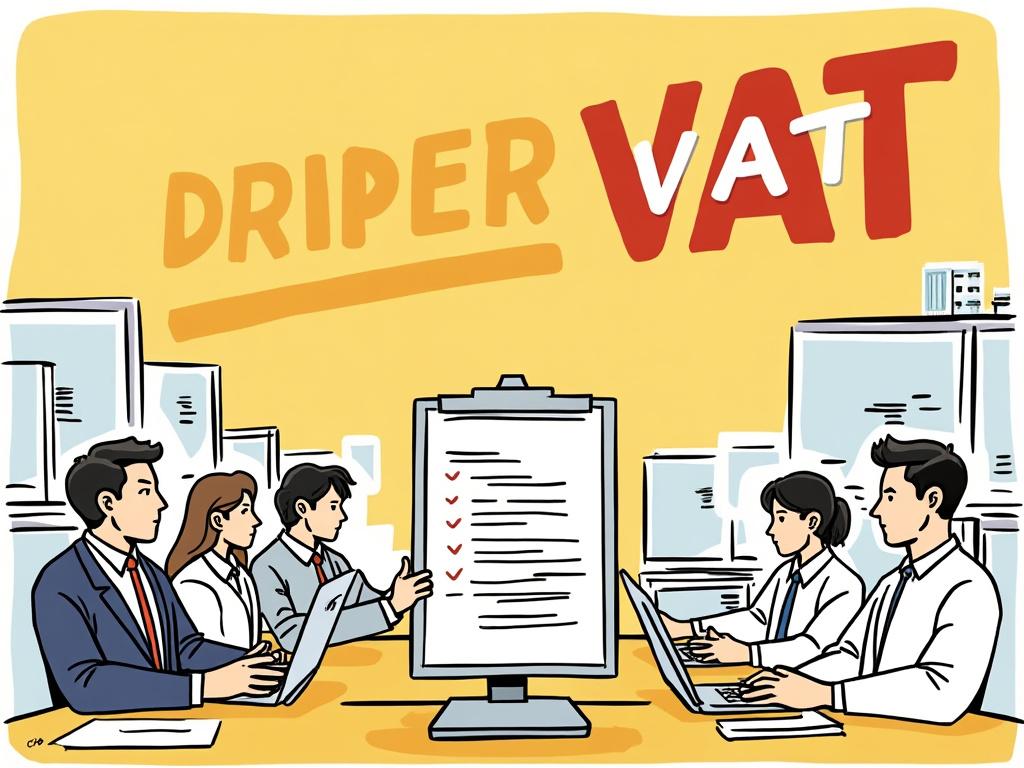
Mastering VAT in Greece: Your Complete Guide to Tax Compliance and Business Success
Reading time: 12 minutes
Ever felt overwhelmed by Greek VAT regulations while planning your business venture or property investment? You’re definitely not alone. Greece’s Value Added Tax system can seem like navigating a labyrinth, but with the right roadmap, it becomes your strategic advantage for successful operations.
Table of Contents
- Understanding Greek VAT Fundamentals
- Current VAT Rates and Categories
- Registration Requirements and Thresholds
- Compliance Obligations and Filing
- Special Schemes and Exemptions
- Real-World Scenarios and Solutions
- Overcoming Common VAT Challenges
- Your VAT Mastery Roadmap
- Frequently Asked Questions
Understanding Greek VAT Fundamentals
Greece’s VAT system operates as a consumption tax applied to most goods and services, following EU directives while maintaining specific national characteristics. Think of VAT as a tax collected at each stage of the supply chain, ultimately borne by the end consumer.
Here’s the straight talk: Greek VAT isn’t just about compliance—it’s about understanding how this system can impact your business profitability and cash flow management. Whether you’re considering expanding operations or looking to buy home in greece, VAT implications will significantly affect your financial planning.
Key VAT Principles in Greece
Territorial Application: VAT applies to supplies of goods and services within Greek territory, including imports from non-EU countries. The place of supply rules determine where VAT is charged, particularly crucial for digital services and cross-border transactions.
Business Registration Threshold: Unlike some EU countries with higher thresholds, Greece requires VAT registration for most business activities, making compliance mandatory rather than optional for serious entrepreneurs.
Current VAT Rates and Categories
Greece operates a multi-rate VAT system with three primary rates, each designed to address different economic and social priorities. Understanding these rates isn’t just about knowing numbers—it’s about strategic business planning.
Greek VAT Rates Comparison
Standard Rate Applications (24%)
The 24% standard rate applies to most goods and services, including professional services, electronics, clothing, and hospitality services. This rate positions Greece among the higher VAT jurisdictions in Europe, reflecting the country’s fiscal requirements following economic restructuring.
Pro Tip: When pricing products or services, always calculate the full VAT-inclusive price to avoid customer sticker shock. Many businesses fail by underestimating the VAT impact on their competitive positioning.
Reduced and Super-Reduced Rates
The 13% reduced rate covers essential items like food products, water supply, pharmaceuticals, and books. Meanwhile, the 6% super-reduced rate applies to specific necessities including newspapers, theatrical performances, and certain medical supplies.
Understanding rate applications becomes crucial when diversifying your product portfolio. A restaurant, for instance, might charge 13% VAT on food items but 24% on alcoholic beverages.
Registration Requirements and Thresholds
Quick Scenario: Imagine you’re launching a consulting business in Athens. What registration requirements would trigger immediate VAT obligations? Let’s dive deep and transform potential administrative burdens into strategic opportunities.
| Business Type | Registration Threshold | Timeline | Key Requirements |
|---|---|---|---|
| Commercial Activity | No minimum threshold | Before first supply | Business license, tax clearance |
| Professional Services | No minimum threshold | Upon commencement | Professional certification |
| Intra-EU Distance Sales | €35,000 annually | Upon threshold breach | EU VAT number validation |
| Digital Services (OSS) | €10,000 EU-wide | Quarterly reporting | OSS registration required |
Mandatory Registration Scenarios
Unlike many jurisdictions, Greece requires VAT registration for most business activities regardless of turnover. This approach ensures comprehensive tax collection but demands immediate compliance preparation from entrepreneurs.
Case Study: Maria, a German consultant, established a subsidiary in Thessaloniki to serve Eastern European clients. Despite projecting only €15,000 first-year revenue, she required immediate VAT registration due to Greece’s no-threshold policy for most commercial activities.
Compliance Obligations and Filing
Successful VAT compliance in Greece isn’t about perfection—it’s about systematic processes that become second nature. The key lies in understanding deadlines, documentation requirements, and leveraging digital tools for efficiency.
Filing Frequencies and Deadlines
Monthly Returns: Businesses with annual turnover exceeding €150,000 must file monthly VAT returns by the 25th of the following month. This frequent reporting ensures better cash flow management but requires robust bookkeeping systems.
Quarterly Returns: Smaller businesses can opt for quarterly filing, due by the 25th of the month following each quarter. While less frequent, quarterly filing requires careful accrual management to avoid cash flow surprises.
Digital Compliance Revolution
Greece has embraced digital transformation through the myDATA platform, requiring real-time invoice transmission for most businesses. This system, while initially challenging, provides unprecedented transparency and reduces audit risks when properly implemented.
Strategic Insight: Businesses leveraging myDATA effectively often experience faster VAT refund processing and reduced compliance costs through automated record-keeping.
Special Schemes and Exemptions
Greece offers several special VAT schemes designed to support specific sectors and business models. Understanding these options can significantly impact your operational costs and competitive positioning.
Small Business Scheme
Businesses with annual turnover below €10,000 can potentially qualify for simplified VAT treatment, though this threshold is notably lower than many EU counterparts. The scheme offers reduced administrative burden but limits input VAT recovery.
Tourism and Hospitality Advantages
The tourism sector benefits from specific VAT treatments, including reduced rates for accommodation and special provisions for travel agencies. Given tourism’s importance to Greek economy, these provisions often receive favorable interpretation from tax authorities.
Real-World Application: A boutique hotel in Santorini can apply 13% VAT on accommodation services while charging 24% on spa treatments, requiring careful point-of-sale system configuration to ensure compliance.
Real-World Scenarios and Solutions
Let’s examine practical situations that demonstrate how VAT compliance translates into business success stories and learning opportunities.
E-commerce Cross-Border Challenges
Scenario: Dimitris operates an online electronics store shipping throughout Europe. Recent EU VAT reforms significantly impacted his compliance obligations and customer pricing strategies.
Solution Approach: By implementing One-Stop Shop (OSS) registration, Dimitris simplified his EU VAT obligations while maintaining competitive pricing. The key was understanding destination-based VAT rules and integrating them into his e-commerce platform.
Outcome: Rather than viewing VAT compliance as a burden, Dimitris leveraged his streamlined system as a competitive advantage, offering transparent pricing that competitors struggled to match.
Property Investment Considerations
Real estate transactions in Greece involve complex VAT implications, particularly for commercial properties and new constructions. Investors must navigate between VAT obligations and traditional transfer tax rules.
For those looking to invest in Greek real estate, understanding VAT implications becomes crucial for accurate ROI calculations and legal compliance throughout the ownership lifecycle.
Overcoming Common VAT Challenges
Ready to transform compliance complexity into competitive advantage? Let’s address the three most frequent VAT challenges facing businesses in Greece.
Challenge 1: Cash Flow Management
The Problem: VAT creates timing differences between cash collection and tax obligations, particularly challenging for service businesses with extended payment terms.
Strategic Solution: Implement VAT-aware invoicing that clearly separates VAT amounts and integrates with cash flow forecasting. Consider VAT impact when negotiating payment terms with major clients.
Challenge 2: Cross-Border Transaction Complexity
The Problem: Determining correct VAT treatment for international supplies requires understanding complex place-of-supply rules and customer VAT status verification.
Practical Approach: Develop standardized procedures for customer VAT number validation and maintain updated matrices for different transaction types. Regular training ensures staff understand when to apply domestic vs. cross-border rules.
Challenge 3: Digital Compliance Integration
The Problem: myDATA and other digital requirements demand real-time data transmission, challenging businesses with legacy systems or manual processes.
Technology Leverage: Invest in cloud-based accounting systems with built-in Greek compliance features. The initial cost typically pays for itself through reduced administrative burden and improved accuracy.
Your VAT Mastery Roadmap
The right VAT preparation isn’t just about avoiding problems—it’s about creating scalable, resilient business foundations that support growth and profitability. Here’s your strategic action plan:
Immediate Actions (Next 30 Days)
- Compliance Audit: Review current VAT registration status and ensure all required registrations are active and current
- System Assessment: Evaluate your accounting software’s Greek VAT compliance capabilities and myDATA integration
- Rate Verification: Confirm correct VAT rates for all your products and services, documenting any complex categorizations
Strategic Development (Next Quarter)
- Process Optimization: Implement standardized VAT procedures for invoicing, record-keeping, and cross-border transactions
- Cash Flow Integration: Build VAT obligations into financial forecasting and budgeting processes
- Training Investment: Ensure key staff understand VAT implications for their specific responsibilities
Long-term Competitive Positioning
- Digital Transformation: Leverage compliance systems as business intelligence tools for better decision-making
- Advisory Relationships: Establish ongoing relationships with Greek tax advisors who understand your industry specifics
- Monitoring Systems: Create alerts for VAT law changes that could impact your business model or pricing strategy
As Greece continues modernizing its tax administration and digital infrastructure, businesses that master VAT compliance today position themselves for sustainable success tomorrow. The question isn’t whether you can afford to invest in proper VAT management—it’s whether you can afford not to in an increasingly competitive and regulated environment.
Your VAT journey in Greece represents more than compliance; it’s your pathway to operational excellence and market confidence. What’s your next step toward VAT mastery?
Frequently Asked Questions
Can I recover VAT on expenses before my business starts operating?
Yes, you can generally recover VAT on pre-registration expenses directly related to your future business activities, provided you register within six months of incurring the costs. Keep detailed records linking expenses to your business purpose, as Greek tax authorities scrutinize pre-operational VAT claims carefully. The key is demonstrating clear business intent and maintaining proper documentation throughout the pre-launch period.
How does the Greek island VAT rate work for online businesses?
The reduced 17% island rate applies to supplies made on specific Greek islands, but doesn’t automatically apply to online sales delivered to islands. The determining factor is where your business is established and where the supply takes place according to EU place-of-supply rules. Online retailers typically apply standard mainland rates unless they have physical presence on qualifying islands, making this more relevant for local service providers than e-commerce businesses.
What happens if I miss a VAT filing deadline in Greece?
Late VAT filings incur penalties starting at €100 for monthly returns and €200 for quarterly returns, plus interest on any unpaid amounts. However, Greek tax authorities often show leniency for first-time offenders who file promptly after missing deadlines. The key is immediate action: file the overdue return, pay any amounts owed, and consider voluntary disclosure if you’ve discovered errors. Establishing a pattern of timely compliance after initial mistakes demonstrates good faith to tax authorities.

Article reviewed by Charlotte Ellsworth, Commercial Real Estate Developer | Transforming Urban Landscapes, on June 6, 2025


